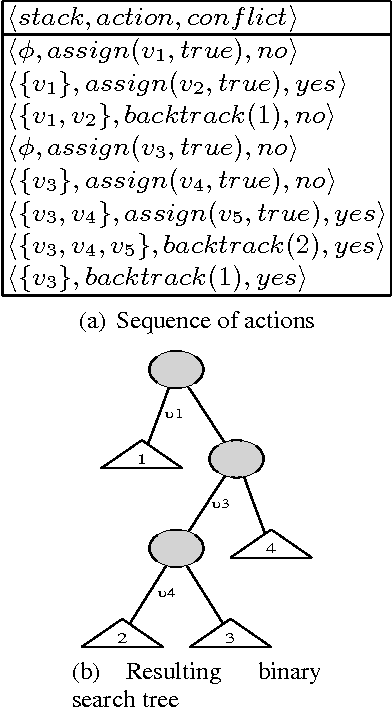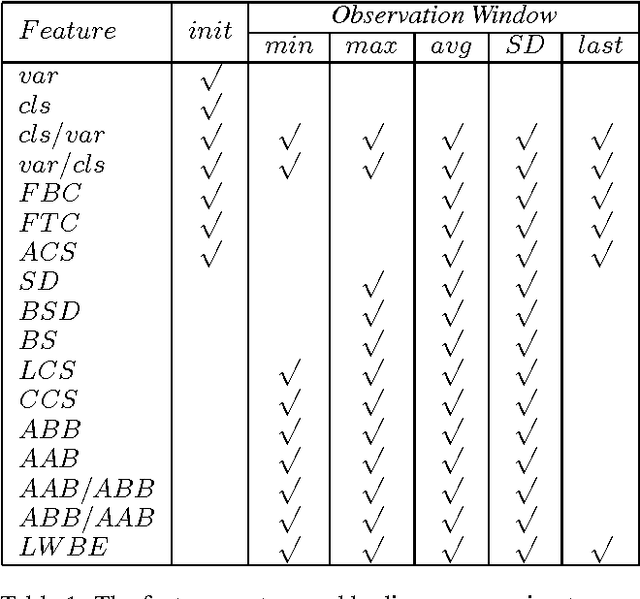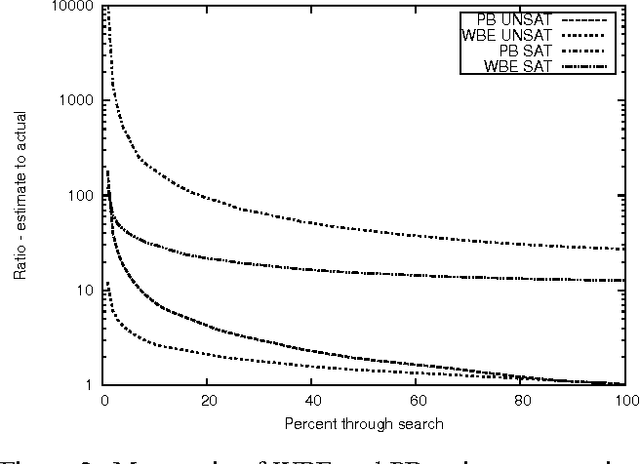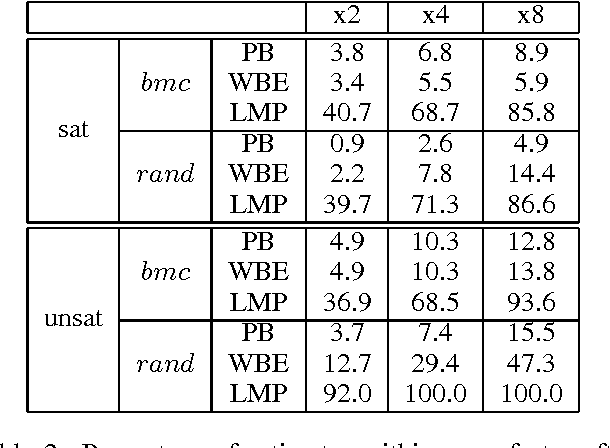Online Search Cost Estimation for SAT Solvers
Paper and Code
Jul 29, 2009



We present two different methods for estimating the cost of solving SAT problems. The methods focus on the online behaviour of the backtracking solver, as well as the structure of the problem. Modern SAT solvers present several challenges to estimate search cost including coping with nonchronological backtracking, learning and restarts. Our first method adapt an existing algorithm for estimating the size of a search tree to deal with these challenges. We then suggest a second method that uses a linear model trained on data gathered online at the start of search. We compare the effectiveness of these two methods using random and structured problems. We also demonstrate that predictions made in early restarts can be used to improve later predictions. We conclude by showing that the cost of solving a set of problems can be reduced by selecting a solver from a portfolio based on such cost estimations.
 Add to Chrome
Add to Chrome Add to Firefox
Add to Firefox Add to Edge
Add to Edge